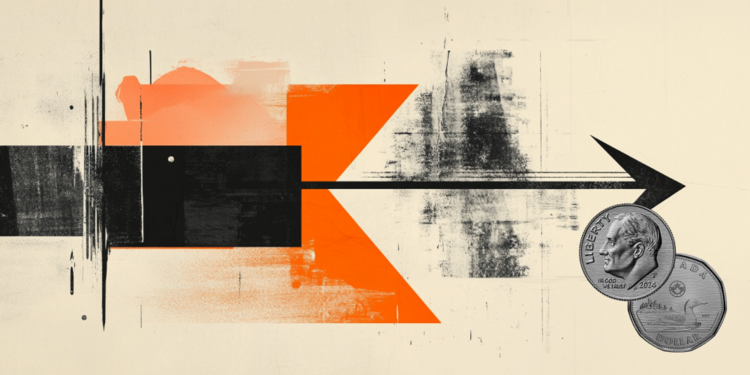While Saturday’s newspapers covered primarily the death of Jean-Louis Trentinian and, secondarily, the election, the French are called today, for the fourth time in ten weeks, to go to the polls, this time to elect their 577 deputies.
However, more than half of the voters – about 25 million – do not seem willing to respond to the call, despite the fact that many are at stake in this parliamentary election, most notably whether President Emanuel Macron, winning the majority, will rule for the next five years with their hands untied, or if, otherwise, they will be forced to rule in search of alliances left and right.
Polls in recent days have shown that his party is moving towards an absolute majority of seats – but this does not seem to be guaranteed.
The coalition of left-wing parties is reportedly heading for second place, winning about 200 seats, far fewer than the 289 that would allow its leader Jean-Luc Melanson to be “elected” – more precisely, to be nominated by Mr Macron. new Prime Minister.
In the first round, the faction close to Mr Macron received 25.75% of the vote, according to the French Interior Ministry, while the faction close to Mr Melanson received 25.66%.
The Melanson faction denounced fraud, claiming that some left-wing candidates were counted as independents.
In third place, with 18.68%, came the far-right party of Marin Le Pen, which today hopes to elect more than 15 deputies, which is the limit to be recognized as an official parliamentary group in the French National Assembly, gaining prestige – and economic resources.
In today’s second round of parliamentary elections, voters are asked to choose in each constituency one of the two candidates who came first in the first round of voting. There are, however, eight constituencies where there are three candidates, while in five others the deputies were elected in the first round. There are 419 candidates from the Macron faction, 386 from the Melanson faction, 208 from Le Pen and 87 neo-Gol Republicans, candidates from the traditional French right.
The abstention that judges a lot
In 278 constituencies there will be a candidate close to Mr. Macron with a candidate close to Mr. Melanson, in 110 of Mr. Macron with a candidate of Mrs. Le Pen, in 62 a candidate of Mr. Melanson with a candidate of Mrs. Le Pen. In 80 constituencies, a Republican candidate will face a candidate from one of the three largest parties.
In other words, most of the voters who will go to the polls today will be asked to elect a party MP who did not vote in the first round.
This, among other things, makes the pollsters extremely cautious, knowing that in the past in the second round of the parliamentary elections they have often fallen short of their predictions.
Many will be judged by the percentage of abstention. In recent days, Jean-Luc Melanson has urged young voters under the age of 35, who more or less voted for him in the presidential election but abstained in the parliamentary elections, to “wake up” because “their future is at stake” and go to the polls.
In today’s election, the fate of 15 ministers of the government of Emanuel Macron who decided to run in the elections is also judged. If they are elected and want to remain ministers, they will have to hand over their seat to their deputy, since in France no one can be a member of parliament and a minister at the same time.
If they are not elected, however, they will be called upon to leave the government as disapproved, in accordance with French political manners and customs.
Collaboration scenarios
The major question that rightly arises in France a few hours before the polls is of course what will be born in the event that the faction close to Mr. Macron comes first to vote without having the absolute majority of seats in the National Assembly.
If it lacks a few seats, it could possibly secure them by convincing some of the few MPs who will be elected today as independents.
But if it lacks many seats then it should extend a hand of cooperation to the Republicans who in the first round received 11.29% and tonight it is estimated that they will have from 50 to 60 deputies.
It is unknown at this time what he will do after leaving the post.
Of course, the fact that in Mr. Melanson’s faction each political component will have a separate parliamentary group gives food to cases, which at the moment are definitely premature.
Mr Macron’s faction may also continue to rule without a majority, seeking co-operation on a case-by-case basis. Something that for many analysts may make France an “ungovernable country” at a time when anything other than that is needed.
In the meantime, the French living outside France voted yesterday. According to reports in the French press, the election campaign for the election of the MP of the unified constituency Israel-Turkey-Greece-Italy seems to have been episodic. The candidate with Emanuel Macron’s faction hinted that there were threats against her and her family from the other candidate, who is close to the traditional French right, had the support of many rabbis and is considered a friend of former Israeli Prime Minister Benjamin . Most of the voters in this constituency live in Israel.
The polls open at 08.00 (French time; 09.00 Greek time) and most close at 18.00 (French time), with the exception of those of the major cities, which will close two hours later. The media is allowed to publish estimates for the distribution of seats after the closing of the last ballot box.
Source: AMPE
* Bloomberg: Macron adopts ominous tone before key vote
Source: Capital
Donald-43Westbrook, a distinguished contributor at worldstockmarket, is celebrated for his exceptional prowess in article writing. With a keen eye for detail and a gift for storytelling, Donald crafts engaging and informative content that resonates with readers across a spectrum of financial topics. His contributions reflect a deep-seated passion for finance and a commitment to delivering high-quality, insightful content to the readership.







